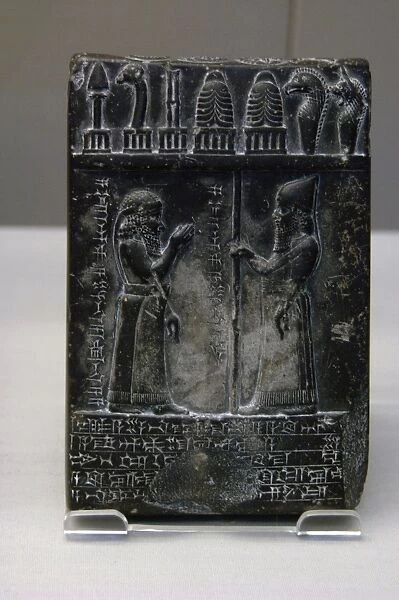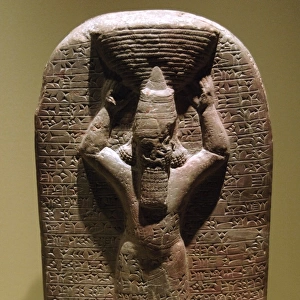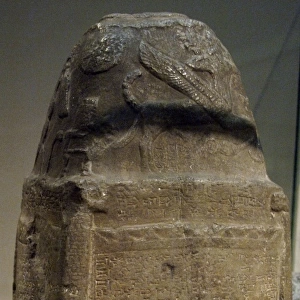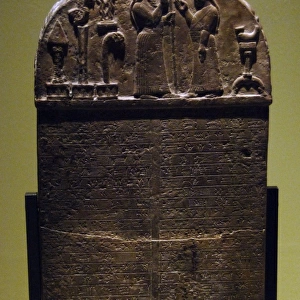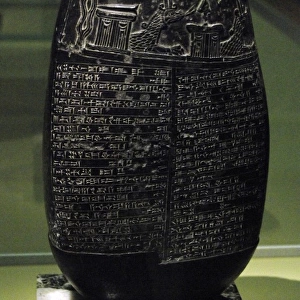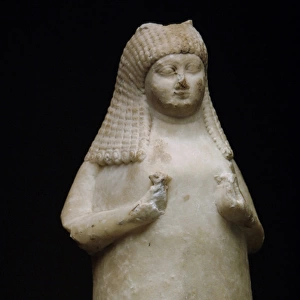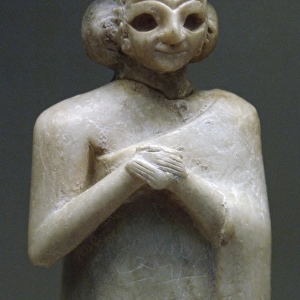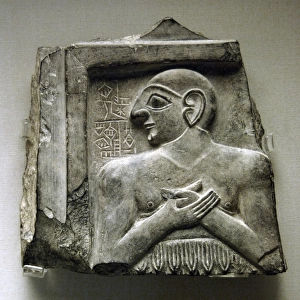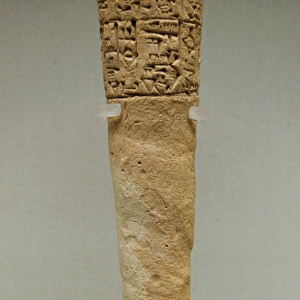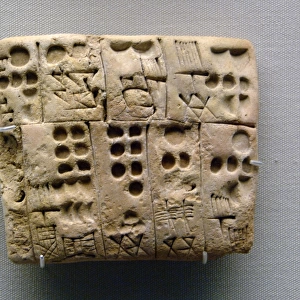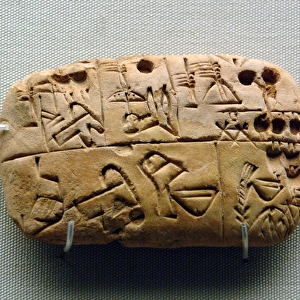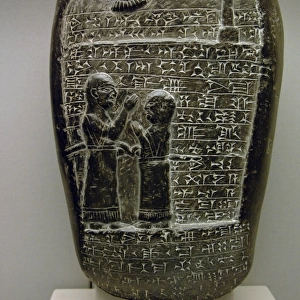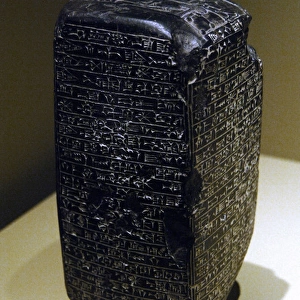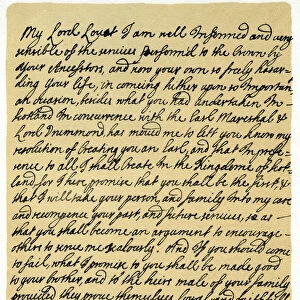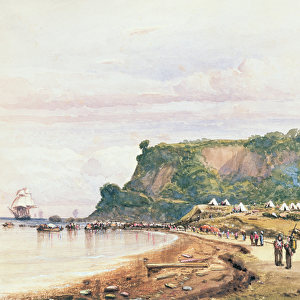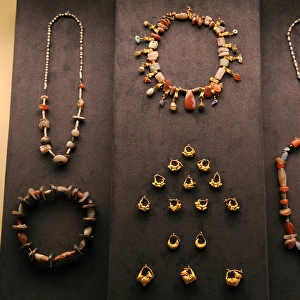Home > Europe > United Kingdom > England > London > Sights > British Museum
Middle babylonian. Black diorite tablet of Nabu-apla-iddina
![]()

Wall Art and Photo Gifts from Mary Evans Picture Library
Middle babylonian. Black diorite tablet of Nabu-apla-iddina
Mesopotamian Art. Middle Babylonian. 875-850 B.C. Black diorite tablet carved with labelled scene showing Nabu-apla-iddina, the priest, standing with his right hand raised in the presence of the king.(Obverse). Inscribed with cuneiform script. British Museum. London. United Kingdom
Mary Evans Picture Library makes available wonderful images created for people to enjoy over the centuries
Media ID 14364971
© Thaliastock / Mary Evans
Babylon Babylonian Carved Cuneiform Diorite Document Dynasty Grant Inscribed Lance Legal Mesopotamia Mesopotamian Script
FEATURES IN THESE COLLECTIONS
> Europe
> United Kingdom
> England
> London
> Museums
> British Museum
> Europe
> United Kingdom
> England
> London
> Sights
> British Museum
> Historic
> Ancient civilizations
> Mesopotamia
> Ancient Mesopotamian art
EDITORS COMMENTS
This Middle Babylonian artifact, now housed in the British Museum in London, presents a significant historical and artistic record from the ancient Mesopotamian civilization. The black diorite tablet, dated between 875-850 BC, depicts Nabu-apla-iddina, a priest, standing before a king. The obverse side of the tablet reveals Nabu-apla-iddina with his right hand raised in a gesture of supplication or blessing, while the king remains unidentified. This scene is intricately carved and inscribed with cuneiform script, an ancient writing system used in Mesopotamia. Nabu-apla-iddina was a prominent figure during the 6th Dynasty of Babylon, which marked the 9th century BC. The tablet is believed to be a document granting land or a legal decree, as evidenced by the inscription and the presence of a lance, a symbol of authority, in the scene. This tablet offers a glimpse into the complex administrative and religious structures of the ancient Mesopotamian civilization. The intricate carving and the use of black diorite, a precious stone, demonstrate the advanced artistic and technological capabilities of the Mesopotamians during this period. The tablet's preservation in the British Museum allows us to learn from and appreciate the rich history and artistic achievements of the ancient civilizations of the Middle East.
MADE IN THE USA
Safe Shipping with 30 Day Money Back Guarantee
FREE PERSONALISATION*
We are proud to offer a range of customisation features including Personalised Captions, Color Filters and Picture Zoom Tools
SECURE PAYMENTS
We happily accept a wide range of payment options so you can pay for the things you need in the way that is most convenient for you
* Options may vary by product and licensing agreement. Zoomed Pictures can be adjusted in the Cart.

